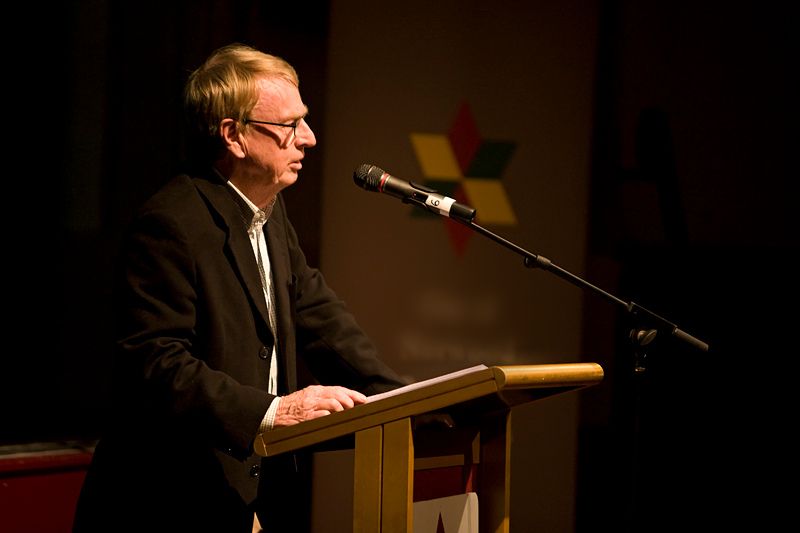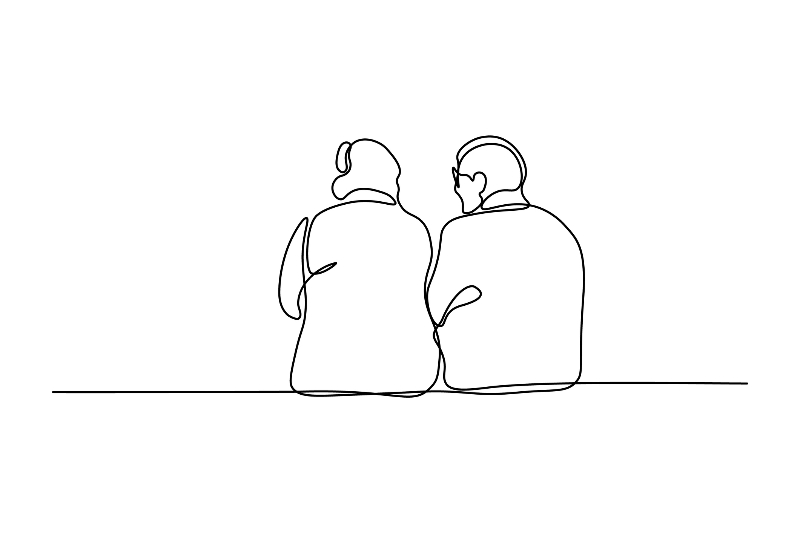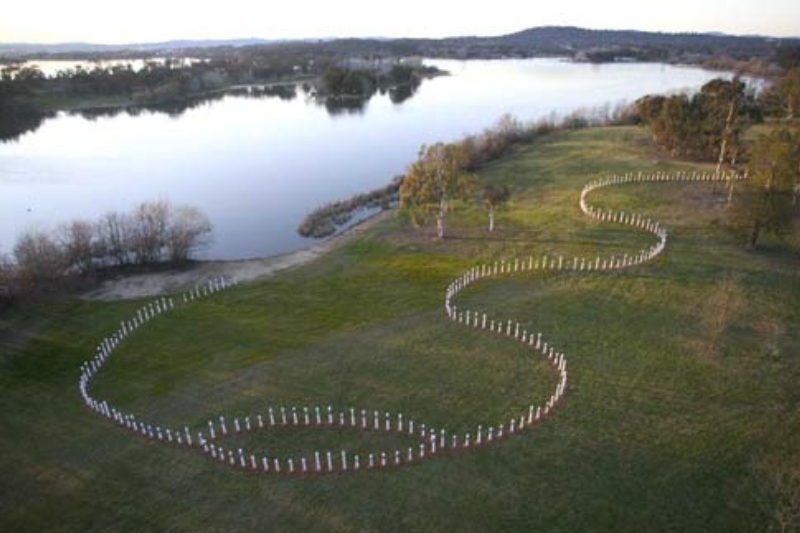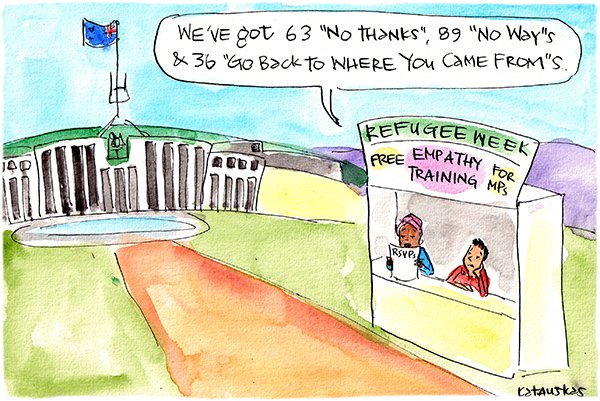Keywords: Christmas Story
There are more than 200 results, only the first 200 are displayed here.
-

ARTS AND CULTURE
- John Schumann
- 15 June 2022
5 Comments
Most of us, when pushed, can name a couple of teachers who had a profound influence on our lives. For me, Brian Matthews was one such teacher. I enrolled in English at Flinders University in 1972. On asking the enrolling officer whether anybody was ‘doing anything about Lawson’, I was directed to the office of Brian Matthews, a recent appointment to the English Department. ‘I hear you know something about Lawson,’ I said, leaning in his doorway.
READ MORE 
-

AUSTRALIA
- Kerry Murphy
- 02 June 2022
7 Comments
The case of the Murugappan family illustrates the punitive and puritanical approach of the previous government towards human beings arriving in Australia by boat and then seeking asylum. The tone of each message clearly reflects totally different attitudes towards the people affected, with special note of the fact that Minister Chalmers rang the family to tell them, and then rang people in Biloela to pass on the news.
READ MORE 
-

AUSTRALIA
- Andrew Hamilton
- 13 April 2022
11 Comments
In our culture, Easter celebrates the benignity of the ordinary. It is a time for getting together with family, for going away to bush or beach, and in southern states a time of mild weather ideal for watching big football matches and other sport. The important question raised now by Easter is whether the meanings of Australian Easter, and indeed those available to our secular society, have the depth needed to handle our present predicaments.
READ MORE 
-

AUSTRALIA
- Julian Butler
- 22 February 2022
5 Comments
Having previously spent time as lawyer working predominantly in the Children’s Court of Victoria, there isn’t too much about the State’s treatment of young people that shocks me. That is, until a few weeks ago when I was drawn to the final item of The Weekend Australian’s editorial column. Under the heading, ‘Hurt boy’s inhuman treatment’, was set out the details of a 15-year-old West Australian boy who had been ‘locked alone in a glass-walled observation cell of a juvenile detention centre in the southern suburbs of Perth for 79 days.’
READ MORE 
-

RELIGION
- Michael McGirr
- 11 January 2022
5 Comments
I must have time on my hands. I have been thinking about the difference between atheists and God cancellers. I love my atheist friends, of whom I am blessed with many. I relish the existential grist of our talks, the deep sense of substance and mutual respect. I also love the constant jokes. We keep each other honest. I enjoy a rich engagement with the history of thought and I believe we ennoble each other through the kind of trust that is prepared to talk about things that are off limits to others.
READ MORE
-

RELIGION
- Andrew Hamilton
- 16 December 2021
19 Comments
Christmas is always a mixture of nostalgia, weariness, connection and hope. This year the strands that compose it are even more tangled. We hope to return to the pre-Covid normal of celebration without anxiety. We look forward to the New Year as a gate to freedom to travel, work and plan our lives without hindrance. At the same time, however, our plans are conditional. We realise that Covid has not left us, and that its mutations may lead to more interruptions and restrictions.
READ MORE 
-

ARTS AND CULTURE
- Barry Gittins
- 07 December 2021
4 Comments
Without Christmas, without that beautiful bookend of closure and celebration for another rather depressing year, where would we be? Speaking for me and mine, ensconced in the oft-locked-down leafy suburbs of Melbourne, 2021 promised much and delivered little more than a continuance of stress, bad blood among some of the tribes that comprise Victorian society, and the hope that heightened vaccination rates will translate into the need for no more lockdowns. That’s certainly a present worth unwrapping.
READ MORE 
-

INTERNATIONAL
- Binoy Kampmark
- 01 November 2021
38 Comments
Two decades ago, an Indonesian vessel given the name SIEV X sank with loss of life that should have caused a flood of tears and a surge of compassion. Instead of being seen in humanitarian terms, the deaths of 353 people became a form of rich political capital, placed in the bank of opportunism to be amortised at a federal election.
READ MORE 
-

ARTS AND CULTURE
- Michael McGirr
- 20 September 2021
11 Comments
It’s not hard to understand why so many people are watching Ted Lasso (Apple TV), nor why it was nominated for twenty Emmy Awards and won seven. Believe it or not, it is twenty years since The Office first premiered on the BBC. Not since then has a comedy series cut so close to the bone of our cultural needs and anxieties.
READ MORE 
-

RELIGION
- Michael McGirr
- 10 August 2021
28 Comments
I must have time on my hands. I have been thinking about the difference between atheists and God cancellers. I love my atheist friends, of whom I am blessed with many. I relish the existential grist of our talks, the deep sense of substance and mutual respect. I also love the constant jokes. We keep each other honest. I enjoy a rich engagement with the history of thought and I believe we ennoble each other through the kind of trust that is prepared to talk about things that are off limits to others.
READ MORE 
-

AUSTRALIA
- Binoy Kampmark
- 24 June 2021
27 Comments
The Murugappan family have found themselves in the middle of this nasty tangle, their fates politicised and manipulated.
READ MORE 
-

AUSTRALIA
- Andrew Hamilton
- 24 June 2021
32 Comments
Deterrence has an inner logic that we can see in Australian treatment of people who seek protection. In the first place it tends to become increasingly brutal. Each breach of policy must be met with a more effective deterrent.
READ MORE 